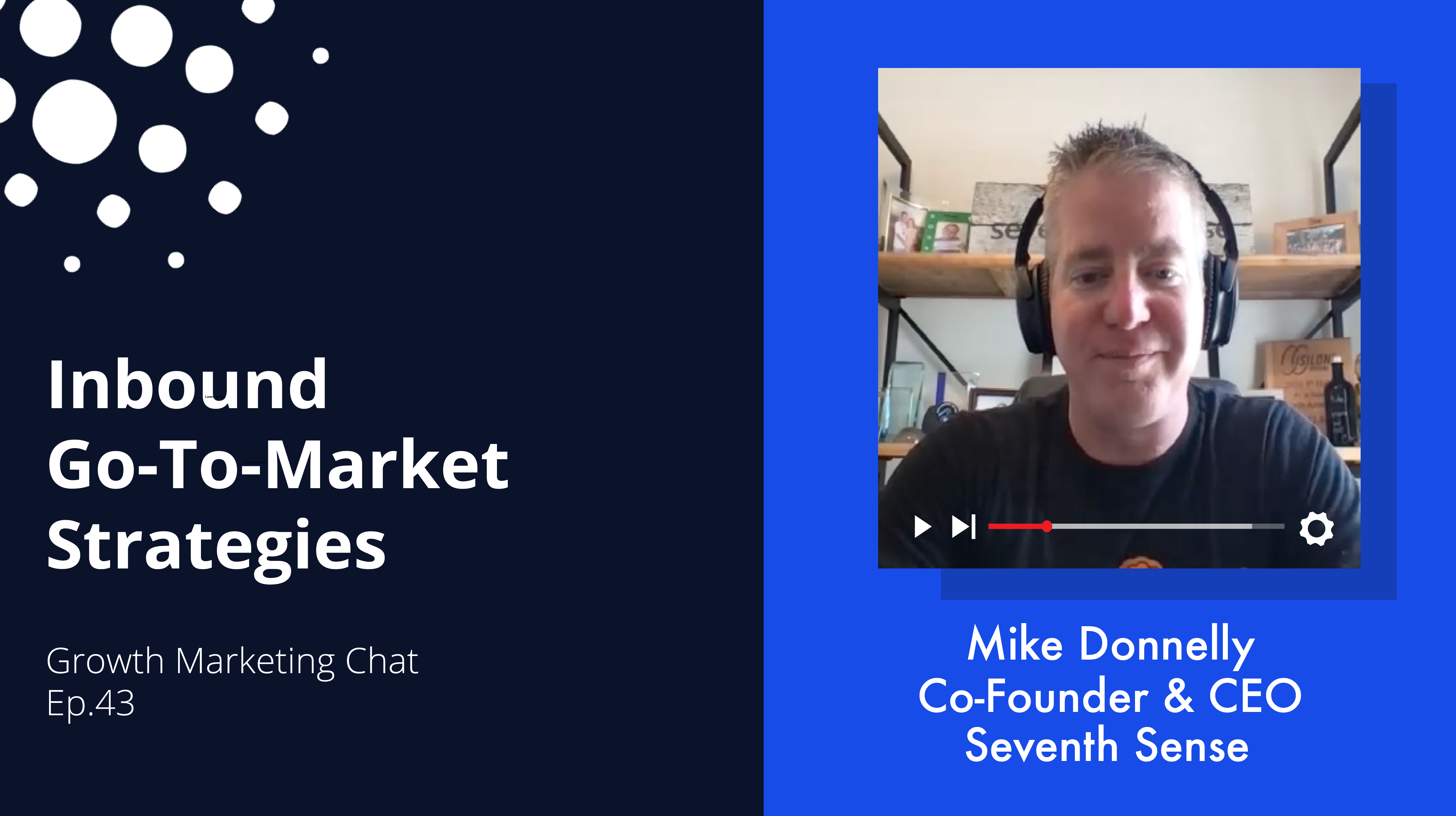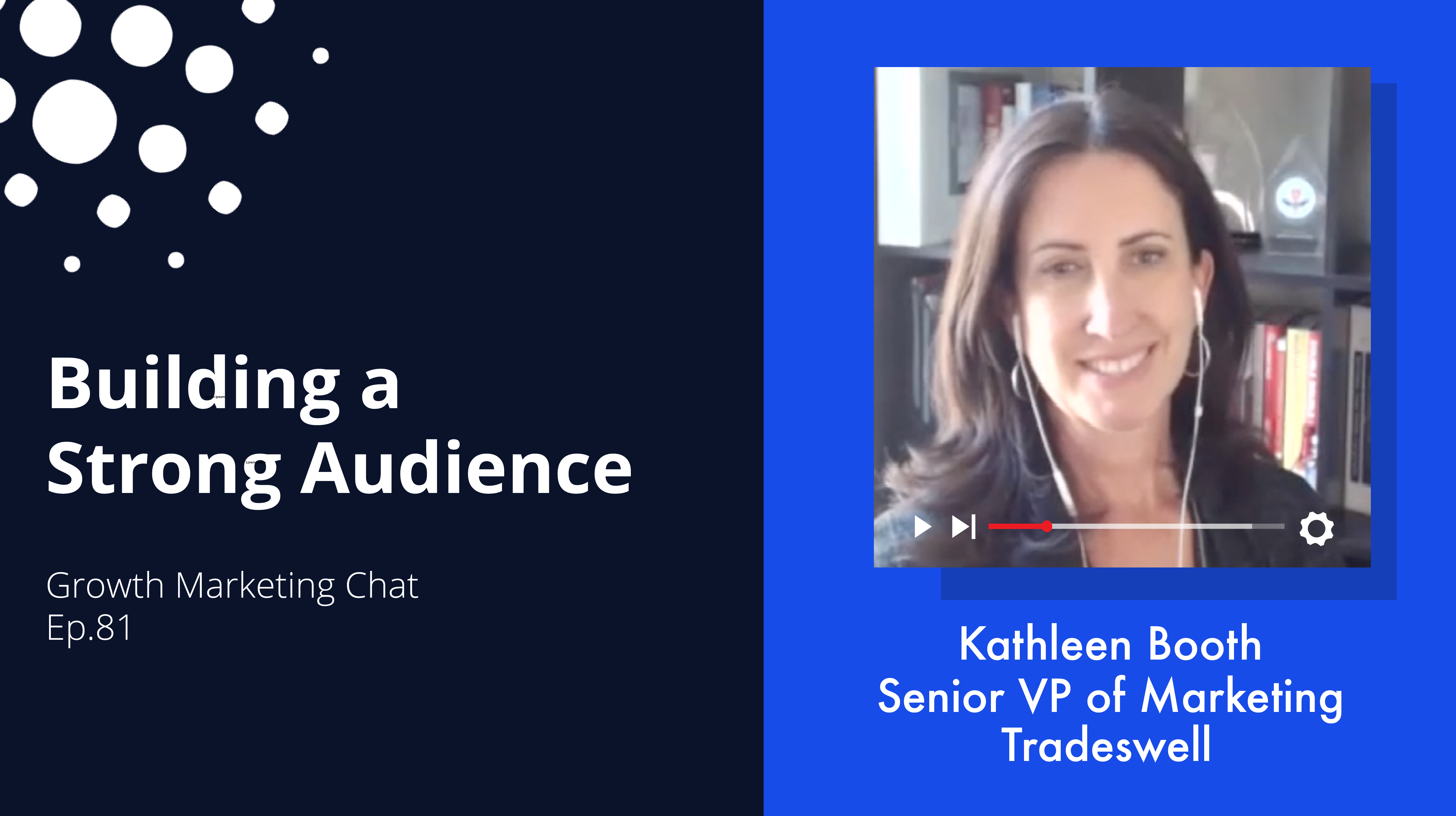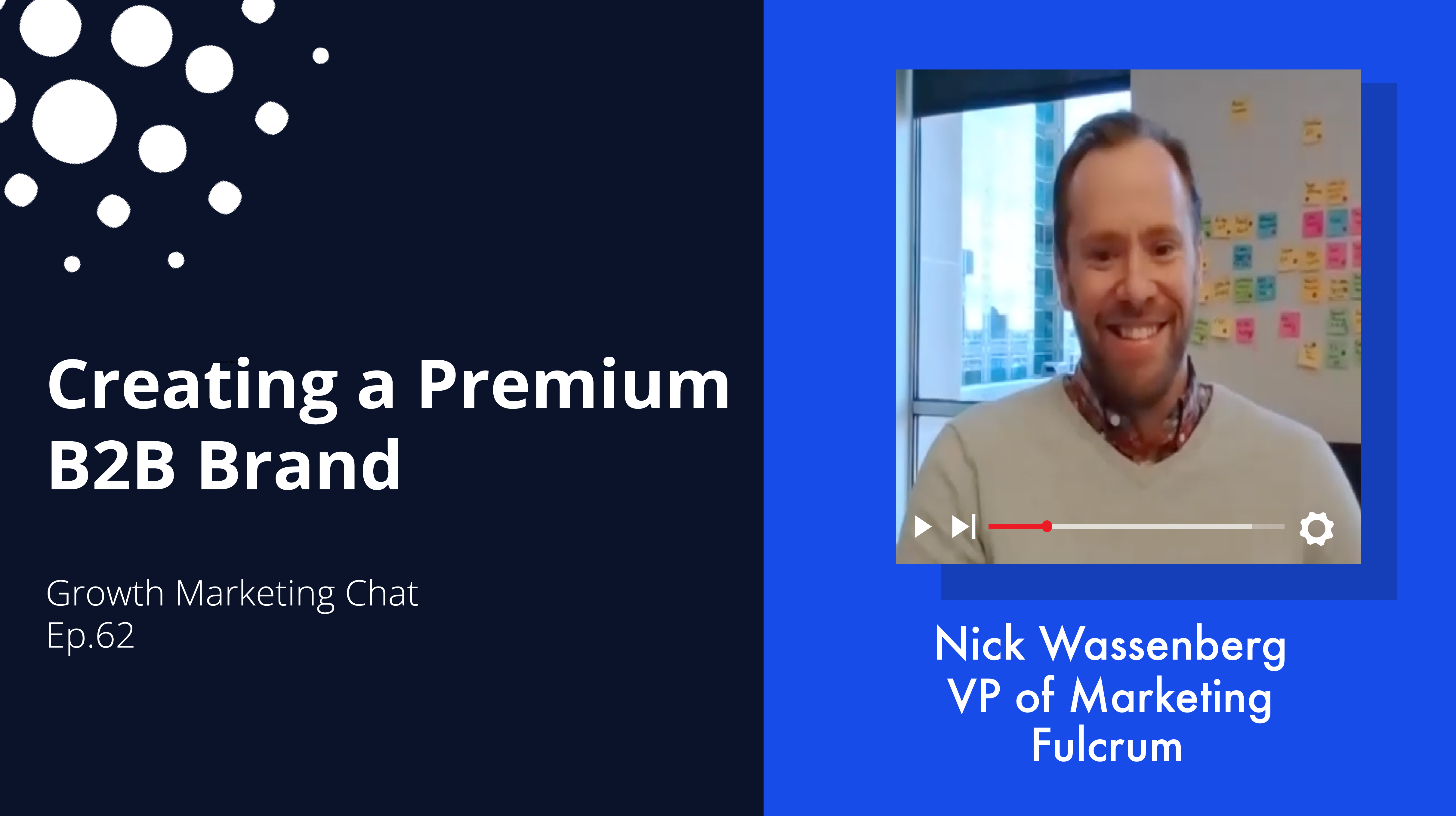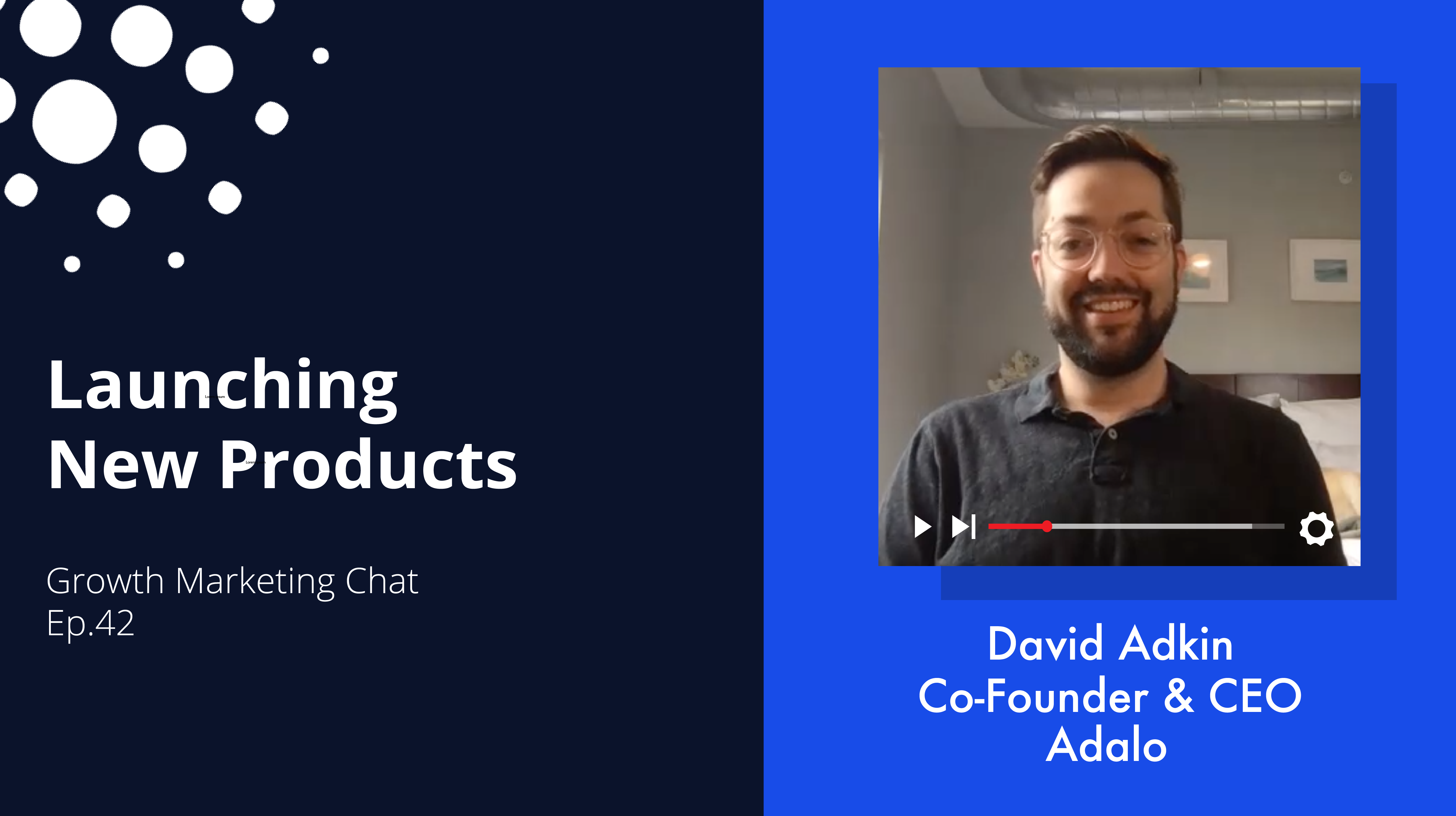Branding is key.
Last week we talked about Brand Voice, and this week we’re taking a closer look at overall branding and how it can help a company achieve its business objectives and growth marketing objectives.
Senior Marketing Manager for Green Circle Growers, Inc., Jose Martinez, shares his expertise about:
-
Educating company leadership on the impacts of marketing and cohesive branding
-
Analyzing and distributing relevant metrics
-
How to set expectations for branding efforts
He also shares fun tidbits on how he got into marketing, along with his thoughts on the new metric-driven marketing landscape and how this helps build more sustainable growth for companies.
How Effective Is Your Branding?
Check out what Jose discusses and think:
Is your team investing enough in your branding efforts? Do you see room for improvement with your company’s branding? Speak up! It could be the piece of the puzzle that boosts your brand awareness and helps drive more business.
Watch the episode now to determine your next step forward and how you can help your organization achieve its business objectives with a stronger, more effective branding strategy.
Video Transcript:
CAROLINE: Hi. Today I’m here with Jose Martinez. Jose is the Senior Marketing Manager for Green Circle Growers. Jose, thank you so much for being with me today.
JOSE: Hi, Caroline. How are you? Glad to be here with you. Thank you for the invitation.
CAROLINE: Yeah. I am really, really excited about this interview. And today we’re gonna change things up a little bit. Usually I keep these interviews really, really short and we only have one question, but I have many questions for you and yeah, I’m excited to get to have a longer conversation with you.
JOSE: Same here.
CAROLINE: Alright. So, to start, I’d like to ask you about how you became a marketer and what’s your favorite part about being a marketer?
JOSE: So, it’s kind of a funny story because I got into marketing even before I graduated from college. So, it was after high school, I took a summer job with a German chemical company, BSF, and they had a consumer division in Columbia and it was really big and important there. And I had to go, I was a merchandiser, I had to go from store to store and I had to clean the shelves, restock the product, and fill out a form for my sales manager, telling us how we were doing in a number of phasing against the competition. And I started realizing that when we were on promotion the other product collected dust and when we had a BOGO buy one, get one free our shelves were empty in each one of the stores that I visited. So, I’m like this marketing stuff is super powerful. And then obviously when I got into college, I wanted to take every marketing course that was available.
CAROLINE: Nice, nice. That’s a great story. That’s a great way to get into marketing. So, now marketing is becoming more and more metric driven because we have access to way more data than we used to. And marketers are expected to be directly responsible for driving revenue and be able to show it. What’s your perspective on this? Is that a good thing or can it be a bad thing?
JOSE: I think it’s a great thing. So, when I started marketing, it was just doing great creative work with an agency, right? You put out a funny campaign and nobody was asking if you were moving more units or not, and what were the actual impact of your campaign. It was just, it was funny. It was good. But obviously over time marketing started losing a little bit of the seat on the table, right? And finance and sales are always very metric driven. So, I think this move into digital marketing has given us a seat at the table very prominently, because not only are we helping the future of the business of building a brand, it’s the only way to build sustainable, profitable growth. But now we have data that proves how good our efforts are doing and then everybody listens.
CAROLINE: Right. Right. So, you talked a little bit about brand and as a marketer I’m a big believer in branding and building a strong brand like a lot of marketers are. Sometimes it’s kind of difficult to advocate for building a brand because it takes a long time, it takes resources, takes a long time to actually pay off, right? You don’t build the brand in one day. So how do you approach building a brand and showing value?
JOSE: Yeah, so you are right on how difficult it is and how long it takes. And it’s so much easier to be in sales and then you close a deal, and then everybody notices it immediately, and there’s applause, and everybody recognizes you, but with branding it takes years, decades, centuries to build a brand, right?
And so, what I do and what I recommend all there is to do is you need to build very strong cross- functional relationships, and then take every opportunity that you have to teach leadership. In the case of a Green Circle Growers, we are a family-owned business. So, I take every opportunity to teach the family that owns the business, and our leadership, and our cross-functional leaders about marketing and what marketing does. Recently for example we did an open house where we invited anybody that wanted to come from all over the company, from the greenhouses, from finance, from all the departments, supply chain. And they were amazed. So, we were very well-prepared and they were amazed about the amount of work that we do and the impact that it has in helping to drive the business, but also the importance of building a strong brand, and the comments that we got back were incredible. So that education internally is super important.
And then any opportunity that you have to share successes and those metrics behind those successes with leadership and ownership you have to take, and I do that continuously via email. I send emails on each one of our campaigns saying, “Hey this was very successful. “Right now, we have a very important event for us every year. The Cleveland Botanical Garden puts, it’s called Orchids Forever this year. And we sponsor it. But before we didn’t highlight our brand and obviously now we’re doing that. And it’s having a great effect. And then obviously I gave the tickets to the ownership and family to go and see what we were doing, and the impact that was having, and the feedback has been amazing.
CAROLINE: That’s great advice. That’s great advice. So, what happens though when a brand fails to really invest in brand building and build a strong brand?
JOSE: No. No, don’t go there! So, what happens is obviously… Then you start competing on price, right? And my theory of competing on price is that there’s going to be somebody who’s going to have a newer piece of equipment, a more efficient way of doing things that is going to cut your price off. So, it’s what I call the race to the bottom, right? You start competing on price and then you start sacrificing margin, sacrificing margin, sacrificing margin. And at some point you cannot sacrifice anymore. And there’s going to be somebody that’s going to have a lower price. So, the risks for a business of not investing in their brands is tremendous. And in a lot of cases, those companies that didn’t invest in their brands are not with us any longer. So, it can be really dramatic.
I also say that there’s retailers out there that have… You talk about Walmart, you talk about Target, you talk about Costco, the clubs, Sam’s club, et cetera. These retailers have a lot of leverage. And I think branding is the only way that you can have a little bit of leverage against the really powerful retailers. So again, building the brand is a strong defense tactic or mechanism to protect yourself also, I guess, the power of really strong retailers in the marketplace.
CAROLINE: Yeah. And I love what you said about the race to the bottom. Like the brand can have the opposite effect, right? Because if you invest in your brand, you increase the perceived value of what you’re selling. You can sell it for more but without investing in your brand, you can’t improve perceived value.
JOSE: Yeah, no, so exactly. So, it all goes together, right? And I say, if you look at really powerful brands, like Apple or that everybody knows, or Tide, a Proctor and Gamble brand, they not only have a lot of leverage because of how strong they are, they are continuously investing and they separate themselves from everybody else in the marketplace, and that is because their brand is so, so strong. So yeah, the only way to, as I said at the beginning to generate sustainable, profitable growth is with a strong brand. There’s no other way.
CAROLINE: Right, so if you had any one piece of advice to give to a marketer that is trying to build up a brand, what would that be?
JOSE: So, again, understand from the beginning that it’s going to be a journey, educate people internally to let them know that it’s going to take… And set the right expectations, right? And then put together a budget that incrementally gets the company used to invest behind the brand. Never talk about spending money, even though that’s what marketing does, always talk about, no, this is an investment, because again it’s an investment for the future, right? And if you don’t highlight those and set those expectations clear then they are always going to be questioning, “Why are these people spending all this money? Can we save some money?” And then they start cutting where they shouldn’t but it’s because of ignorance rather than because it’s the right thing to do. Right?
So, again, I think that’s the best advice that I would have to give to other marketers. Build your brand strong, invest progressively more and educate the people so that they understand how marketing works, and that, yes, it does take time, but eventually the outcome of all this effort is just incredible. And again, it’s a sustainable profitable growth which is what we all are trying to find.
CAROLINE: Right. Exactly. Well, thank you so much for sharing all of this with us today. I think it’s very actionable and we can all start using this internally and externally. So, thanks a lot for sharing all of your insights.
JOSE: My pleasure, Caroline. It was great to talk to you.





